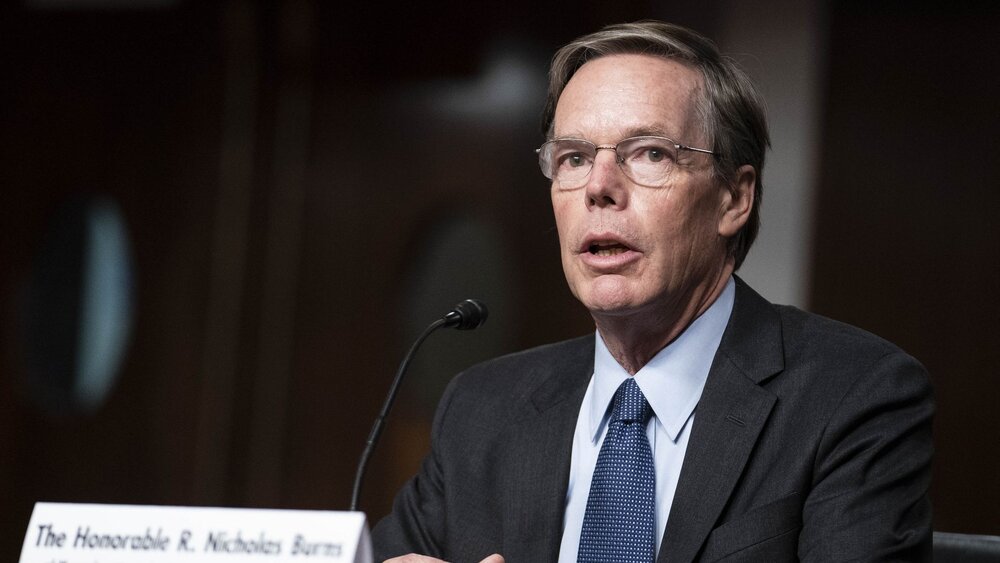U.S. Senate approves Nicholas Burns as China envoy

TEHRAN - The U.S. Senate on Thursday voted to back the nomination of long-time American diplomat Nicholas Burns to be the U.S. ambassador to China, ending 11-month wrangling over the key nomination.
The Senate voted 75 to 18 to confirm Burns, a former U.S. ambassador to NATO who served as Under Secretary of State between 2005 and 2008, as the next U.S. envoy to Beijing.
“If there’s a place that we need an ambassador, it’s China,” Senator Bob Menendez, the New Jersey Democrat who chairs the Foreign Relations Committee, said ahead of the vote.
“We’ve spent so much time, both in committee [and] on the floor, hearing about the challenges of China, but we don’t have a U.S. ambassador to help U.S. meet those challenges.”
Biden's choice of Burns, who has served in senior diplomatic positions under both Democratic and Republican administrations, marks a shift as the position was previously filled by former politicians.
The nomination of Burns comes amid increasingly fractious relations between the world’s two biggest economies who have been at odds over a range of issues in recent years.
It was not immediately known when Burns will formally assume the role, and whether it would be before the 2022 Winter Olympics in China or after that.
The White House on December 7 announced “diplomatic boycott” of the marquee sports event to be hosted by China, over alleged human rights "atrocities”, which means no government officials will attend it, even though athletes from the U.S. will compete.
U.S. President Joe Biden had in August announced Burns as the country's nominee for ambassador to China even as tensions between the two rivals escalated.
Burns, a Foreign Service veteran, currently serves as Professor of the Practice of Diplomacy and International Relations at Harvard University's Kennedy School of Government.
He is also Executive Director of the Aspen Strategy Group and Security Forum and Senior Counselor at the Cohen Group.
As Under Secretary of State for Political Affairs, he worked with the Chinese government on issues such as Afghanistan, United Nations Sanctions against Iran, North Korea, and U.S. policy in the Indo-Pacific.
In October, during a confirmation hearing, Burns said China represents the greatest security threat to the United States and the democratic world and unlike Washington, Beijing has no real allies.
He said the U.S. and China should work on improving their communications in order to avert the possibility of a conflict and maintain regional peace.
However, at the same time, the seasoned diplomat called on Congress and the Biden administration to scale up security cooperation and arms provisions to Taiwan to defend itself from China.
“Our responsibility is to make Taiwan a tough nut to crack,” Burns said while rejecting a suggestion that the U.S. ditch its longstanding policy of “strategic ambiguity.”
Meanwhile, many other diplomatic posts remain vacant in the U.S. almost a year after Biden assumed power in a chaotic election, with Republicans withholding support to many of them.
Almost 90 nominees for top State Department jobs and ambassador posts are currently under consideration by the Senate, according to the Partnership for Public Service.
The body has confirmed 32 nominees so far, including Secretary of State Antony Blinken and some of his top deputies.
